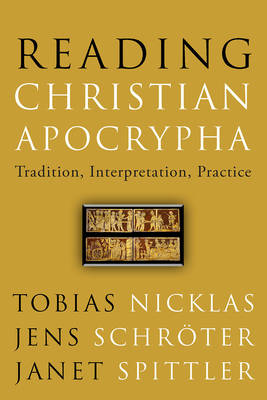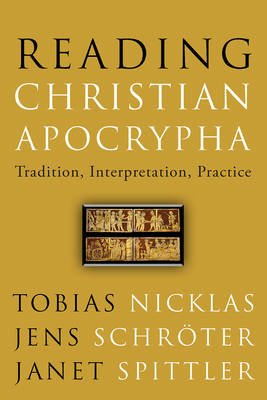
- Retrait gratuit dans votre magasin Club
- 7.000.000 titres dans notre catalogue
- Payer en toute sécurité
- Toujours un magasin près de chez vous
- Retrait gratuit dans votre magasin Club
- 7.000.000 titres dans notre catalogue
- Payer en toute sécurité
- Toujours un magasin près de chez vous
Reading Christian Apocrypha
Tradition, Interpretation, Practice
Tobias Nicklas, Janet SpittlerDescription
Christian apocrypha has suffered neglect. Living just outside the Christian canon, apocryphal Christian works have been judged deficient, secret, and even heretical. In Reading Christian Apocrypha, Tobias Nicklas and Janet Spittler lavish attention upon these extracanonical texts to demonstrate that, far from being superfluous or fringe, Christian apocrypha plays a crucial role in the history of Christianity.
Apocryphal works function as important witnesses for the reception of Jesus, Paul, and other apostolic figures. Beyond the reception of canonical figures, however, they provide foundational stories that fill in the Christian landscape of memories, supplying local and regional Christian communities with narratives that tie their own environment, traditions, and practices to the activities of the apostles and apostolic figures. Reading Christian Apocrypha also explores how apocryphal works adopt and adapt Jewish and Greco-Roman views on the origin of the world, its history, and the world to come, creating new "spaces of interpretation" around biblical texts and traditions.
The apocryphal writings reveal that Christianity, from the very beginning, developed a wide variety of theological perspectives within diverse linguistic traditions and geographical areas. Ultimately, Reading Christian Apocrypha demonstrates that the distinction between "canonical" and "apocryphal" tradition is far blurrier than often assumed.
Spécifications
Parties prenantes
- Auteur(s) :
- Editeur:
Contenu
- Nombre de pages :
- 450
- Langue:
- Anglais
Caractéristiques
- EAN:
- 9781506481401
- Date de parution :
- 16-09-25
- Format:
- Livre broché
- Format numérique:
- Trade paperback (VS)
- Dimensions :
- 152 mm x 229 mm
- Poids :
- 317 g







